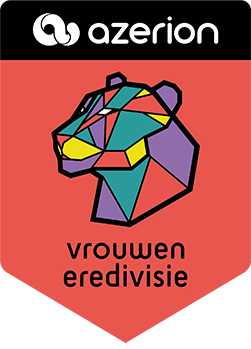It is not possible to load the page you were looking for on KNVB.com.
The website is currently in maintenance mode. Please try again later.
Do you use an adblocker? Try turning it off and reload the page.
KNVB.nl
News and support for Dutch football.
Oranje
The official channel of the KNVB for all Oranjefans.
Voetbal.nl
The platform for results, standings, programs for all amateur football players in The Netherlands.
TOTO KNVB Beker
The latest news, results and programs of the TOTO KNVB Beker.

Azerion Vrouwen Eredivisie
The official channel of the Pure energie Eredivisie Vrouwen with the latest news, programs standings and rundows.
Rinus
The online assistant for all youth trainers of The Netherlands.
KNVB Shop
The offical webshop of the KNVB.
KNVB Ticketshop
The Offical sales channel for the KNVB. Buy your tickets here for Oranje and the TOTO KNVB Beker.
A selection of completed WorldCoaches programmes can be found below.
This programme aimed to improve the health of 520,000 schoolchildren and their families through football-based life skills education, complimented by the provision of (1) safe and sustainable water facilities and (2) football pitches to more than 600 schools around Ghana, Mozambique and Kenya. Football proved to be an effective tool to mobilise children and teach them hygiene practices in a playful manner. During this programme, our research partner Kantar Public Kenya found that children showed significant improvements in their hygiene behaviour. This was most notably the case for menstrual hygiene management. These results were accomplished through simple activities like organising mixed boys and girls tournaments in schools. During these tournaments, WorldCoaches raised awareness about life skills that led to healthy behaviours, such as frequent hand washing. These are playful ways to achieve sustainable behavioural changes among children.
"Before the inception of the programme, my school encountered many environmental problems, like open defecation and improper disposal of waste. Now, there is a massive improvement in this due to the work that we do in the school as WorldCoaches." Mohammed Awal Hussein – Local WorldCoaches instructor in Ghana.
Primary school girls playing in a Football for Water tournament in Kenya.
Football is widely recognised as being a universal language that has the power to build bridges between different ethnic groups and nationalities. Since Lebanon is home to millions of refugees, football can be a relevant tool to bring host communities and refugees together. Through the Sports and Humanitarian Assistance programme, the KNVB aimed to improve social cohesion between host and refugee communities. This was achieved in partnership with War Child Holland and Right to Play Lebanon. Youth from Lebanese, Syrian and Palestinian backgrounds were trained to become WorldCoaches who promote social cohesion in their communities. They did so by organising football and life skills training sessions for children from various backgrounds. Under the guidance of WorldCoaches, children from different walks of life got to know each other by interacting on the football pitch, where they not only played together but also learned to respect each other's differences, both on and off the football pitch.
"Football forgets social issues related to nationality, religion, gender and origin." Kawsar Seif – WorldCoach in Lebanon.
In Lebanon, football was used as a vehicle to build bridges between different ethnic groups and nationalities.


